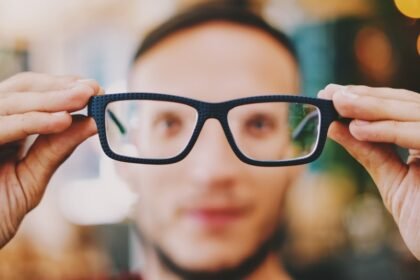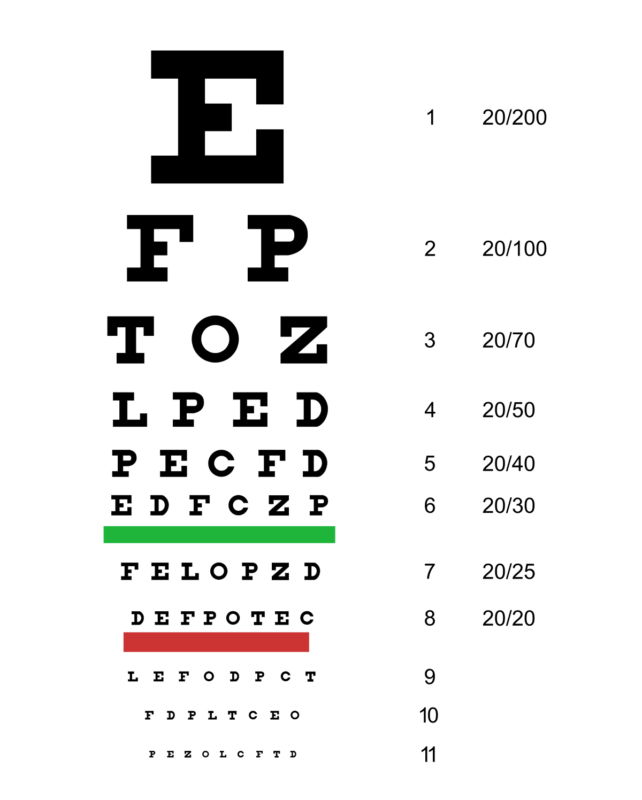Do I need an eye test?

We recommend that you book an eye test at least every two years. However, if you notice any difference in your vision, fall into a certain age group, or have started experiencing some of the symptoms we’ve outlined below, it’s best to book an eye test appointment as soon as possible.
Why Eye Test Is Required?

Overview
An eye exam involves a series of tests to evaluate your vision and check for eye diseases. Your eye doctor may use a variety of instruments, shine bright lights directly at your eyes and request that you look through an array of lenses. Each test during an eye exam evaluates a different aspect of your vision or eye health.
Why it’s done
An eye exam helps detect eye problems at their earliest stage — when they’re most treatable. Regular eye exams give your eye care professional a chance to help you correct or adapt to vision changes and provide you with tips on caring for your eyes.
When to have an eye exam
Several factors may determine how frequently you need an eye exam, including your age, health and risk of developing eye problems. General guidelines are as follows:
Children 3 years and younger
For children under 3, your pediatrician will likely look for the most common eye problems — lazy eye, crossed eyes or misaligned eyes. If there are eye concerns or symptoms, an examination is appropriate at that time regardless of age. Your child could undergo a more comprehensive eye exam between the ages of 3 and 5.
School-age children and adolescents
Have your child’s vision checked before he or she enters first grade. If your child has no symptoms of vision problems and no family history of vision problems, have his or her vision rechecked every one to two years. Otherwise, schedule eye exams based on the advice of your eye doctor.
Adults
In general, if you are healthy and you have no symptoms of vision problems, have your eyes checked on this schedule:
- Every five to 10 years in your 20s and 30s
- Every two to four years from 40 to 54
- Every one to three years from 55 to 64
- Every one to two years after age 65
Have your eyes checked more often if you:
- Wear glasses or contact lenses
- Have a family history of eye disease or loss of vision
- Have a chronic disease that puts you at greater risk of eye disease, such as diabetes
- Take medications that have serious eye side effects
HOW OFTEN DO I NEED AN EYE TEST?
Eye tests play a huge part in making sure your eyes stay healthy. Not only are they important for indicating whether you need to start wearing glasses or need to change your prescription, but also for detecting some common medical conditions.
For most people, it is advisable to have an eye examination (another name for the ‘sight test’) every two years, and to attend earlier if any eye problems occur, or if advised by your optometrist. A comprehensive sight test includes both a test of vision and an eye health check.
Children’s Eye Care

Family
As a parent we believe it’s important you have regular sight tests. Some eye problems run in the family, so identifying any problems you may have will also benefit your children.
Pregnancy
Your body goes through many changes during pregnancy, and your eyes can be affected too. Fluctuations in hormone levels can lead to dry eyes, blurred or distorted vision, or spots and floaters. Don’t worry if you experience any of these problems; the chances are they developed naturally and will disappear in the same way after childbirth, But it’s always important to visit your optometrist or GP if you do have any problems, just in case these symptoms are something other than hormonal changes.
Toddlers
We advise that children should have their first eye examination at around three years old. Learning difficulties can sometimes be caused by uncorrected vision problems, so the earlier they can be detected, the better the chance of correcting them.
Children’s eye care
Vision plays an important part in your child’s development, so its important to keep on top of their eye health. However, it can be difficult to work out whether they are having problems with their eyes. Visit our dedicated section about children’s eye care to learn about some of the symptoms to look out for.
Different Age

Age
Anyone can develop problems with their sight, but some groups of people may be at a higher risk. This includes those aged 40 and over who have a family history of glaucoma and those aged 60 or over. If you fall into these categories it’s worth speaking to your optometrist to find out often you will need an eye test.
Teen’s eyecare
Many children will start needing prescription eyewear in their teens, as this is a prime time for the development of near-sightedness, or myopia. It’s important to encourage teenagers to get into the habit of regular eye examinations. Uncorrected vision problems can affect all aspects of their lives: their studies at school or university; their job; even their social life or ability to play sport.
If they need help with their vision, there are all sorts of solutions – from regular glasses to prescription sunglasses, contact lenses and even prescription goggles.
Over 40s
Changes to your vision are a natural part of the ageing process and commonly occur around your 40s, so it’s important to have your eyes tested regularly once you reach this age, and with an early diagnosis most age-related conditions can be managed effectively.
